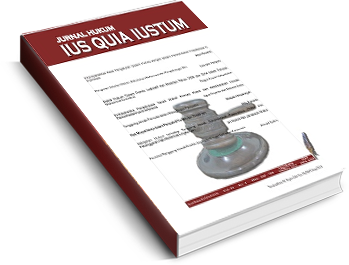Main Article Content
Abstract
The election in Indonesia is regulated by the Electoral Law which is always changing. One of the reasons was due to a judicial review at the Constitutional Court, for example related to the Election Law in 2009 and 2014. As a result, there arose several problems, first, how is the political direction of the legal system of legislative and presidential elections in 2009 and 2014 related to the Constitutional Court's decision? Secondly, what are the political implications of the law on the Constitutional Court's ruling against the system of legislative and presidential elections in 2009 and 2014? This study will examine the subject of the matters through the juridical-normative approach and case approach. The study concluded, first, the legal political system of elections in 2009 and 2014 in the decisions of the Constitutional Court is more about the maintenance to achieve the substantive democracy, while the democracy procedural got less attention. Thus, some Constitutional Court's decisions ignore the nature of procedural democracy in order to obtain substantial democracy. Secondly, the Constitutional Court's decisions raise several direct and indirect implications.
Keywords
Article Details
Authors who publish with this journal agree to the following terms:
a. Authors retain copyright and grant the journal right of first publication with the work simultaneously licensed under a Creative Commons Attribution License that allows others to share the work with an acknowledgement of the work's authorship and initial publication in this journal.
b. Authors are able to enter into separate, additional contractual arrangements for the non-exclusive distribution of the journal's published version of the work (e.g., post it to an institutional repository or publish it in a book), with an acknowledgement of its initial publication in this journal.




